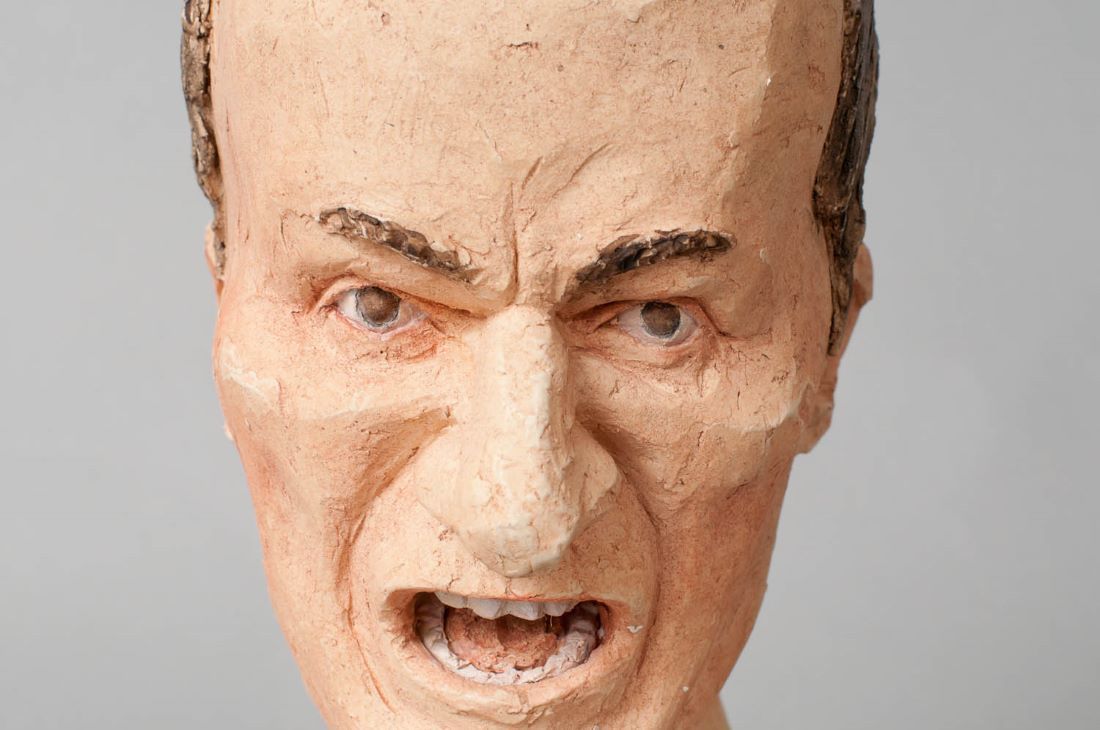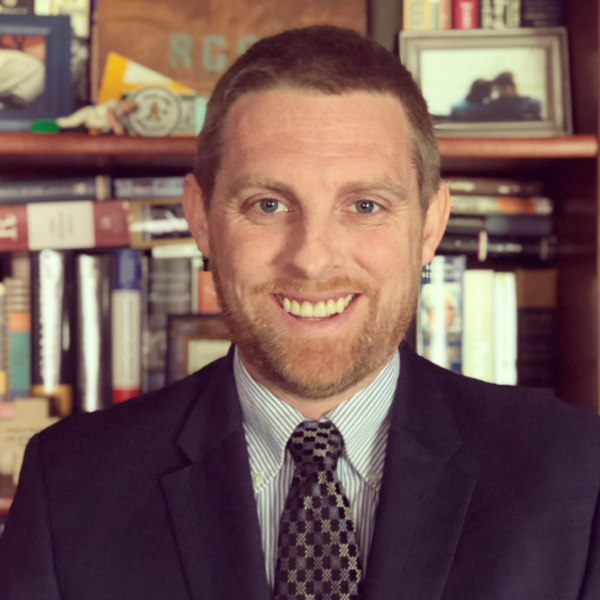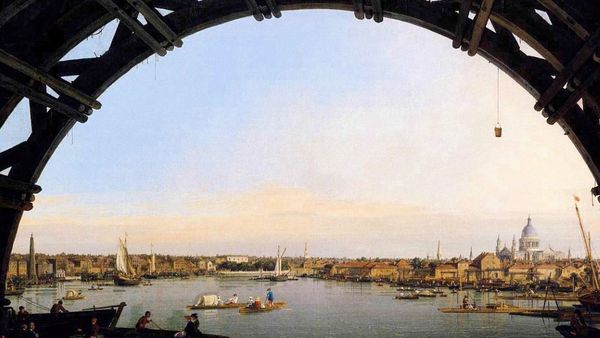The nature of American conservatism, and the key priorities of the Republican Party, are being changed by Donald Trump with his commitment to an “America First” populist-nationalism—most clearly on issues like immigration and our relationship to other countries. At the same time, he has retained the party’s commitment to economic policies that are designed to benefit the wealthiest Americans. The Democratic Party meanwhile has gradually been moving away from its working class roots, as economic and cultural elites gain greater control of the party. One result was its embrace of an extreme position on abortion in its 2016 platform and subsequent efforts to impose a litmus test on candidates that is designed to purge pro-life Democrats from office.
This all comes at a time when the United States is facing a serious erosion of democratic norms that threatens the functioning of our republic and the institutions that guarantee the freedoms many Americans take for granted. It is a time of great upheaval and unrest. The novel coronavirus may or may not disrupt the status quo in American politics, but the Black Lives Matter protests have placed systemic racism at the center of our national discourse, shifted public opinion on related issues, and raised new possibilities for policy change. But if our broken, dysfunctional political system inhibits real change, the current resolve and hope we are seeing may turn into cynicism and despair, as we delay once again the inevitable reckoning with our nation’s original sin.
There are also grave global and international challenges at the present moment. From a global pandemic to rising authoritarianism to the persistence of global poverty to a refugee crisis to international aggression and mass atrocities by states and non-state actors, the global responsibilities of the United States, given its unique power, are considerable and cannot be ignored.
How should Catholics who wish to live out their faith in the public square respond to these recent developments and the gaps that exist between Catholic Social Teaching and the platforms and behavior of each of the country’s major political parties?
No one offers better guidance on how to respond to these domestic and global challenges than Pope Francis. Building on the rich tradition of Catholic Social Teaching, while providing an intense focus on the poor and vulnerable, Pope Francis has revitalized the Church’s role as a countercultural force against injustice and the mindsets and actions that foster it.
Pope Francis has pointed to the existence of a throwaway culture, where the poor and vulnerable are used as though they are inanimate objects who are created for our consumption and then discarded when our self-centered interest has been served. He points to a globalization of indifference—we grow accustomed to the suffering of others, we stop paying attention to it, we stop caring. We become so absorbed in our own well-being, in the latest technology, in the superficial and the ephemeral, that our relationships become broken, we are no longer able to hear the cry of the poor, and we lose the radicalism of the Christian call in exchange for mediocre lives of tranquility, comfort, and conformity.
In its place, he calls on Christians to go to the margins, to the peripheries, where the discarded and the excluded dwell. He calls on us to accompany the vulnerable, to learn from them, and to tear down the structures that repress them. He wants a Church that is a field hospital that heals the wounded. This is a Church that opens its arms to people, that welcomes the alienated and isolated, and never ceases to proclaim the inclusiveness and transformative power of God’s love. In the place of a culture of indifference, Pope Francis calls on us to create a culture of encounter. This requires meeting people where they are. It calls for dialogue. It demands not simply that we stand for the right positions, but that we stand with those who are the victims of a throwaway culture. We must see them as persons, rather than as facets of an abstract ideology. He calls on us to experience their pain and to hear their hopes and aspirations. These messages are perhaps even more acutely needed at a time of great unrest over the persistence of racial injustice in American society.
Pope Francis reminds us that being a Christian is not about going to church once a week for an hour (or livestreaming it at the present moment), hoping that God puts a check by our name on the good list. Christianity must be lived at all times. He has said explicitly that we must not be part-time Christians or decorate our life with a little religion like adding frosting to a cake. We must live the faith in both word and deed; it must vivify our entire existence. If we attend Mass, but exploit those who work for us the rest of the week or mistreat our spouses or ignore the plight of the poor, we are not living the faith.
As Pope Francis says, “Love is the measure of our faith.” And the hypocrisy of proclaiming one’s faith but failing to love is toxic; it undermines our Christian witness. It pushes people away from Christ, rather than drawing them in to learn about the Truth of the Gospel. It is easy to get swept up by the ambient culture, but faith—real faith—keeps our feet on the ground, even as relativism, individualism, materialism, consumerism, and indifference swirl around us.
It is within this context that we must consider our role in public life—as members of local communities, as citizens, and as members of the global community. The culture of indifference is present in our communities, in our government’s policies, and in the international system. A countercultural response is thus required, one rooted in Christian values, in a faith that seeks justice.
Within the American political context, following the lead of Pope Francis means working for radical change to upend an unjust status quo and broken political system. Bishop Robert McElroy, who was appointed as the bishop of San Diego by Pope Francis, has called on all Catholic Americans and people of good will to become disruptors:
President Trump was the candidate of “disruption.” He was “the disruptor,” he said, challenging the operations of our government and society that need reform.
Well now, we must all become disruptors. We must disrupt those who would seek to send troops into our streets to deport the undocumented, to rip mothers and fathers from their families. We must disrupt those who portray refugees as enemies rather than our brothers and sisters in terrible need. We must disrupt those who train us to see Muslim men, women and children as forces of fear rather than as children of God. We must disrupt those who seek to rob our medical care, especially from the poor. We must disrupt those who would take even food stamps and nutrition assistance from the mouths of children.
But we, as people of faith, as disciples of Jesus Christ, as children of Abraham, as followers of the Prophet Muhammad, as people of all faiths and no faith, we cannot merely be disruptors, we also have to be rebuilders.
We have to rebuild this nation so that we place at its heart the service to the dignity of the human person and assert what the American flag behind us asserts is our heritage: Every man, woman and child is equal in this nation and called to be equal.
We must rebuild a nation in solidarity, what Catholic teaching calls the sense that all of us are the children of the one God, there are no children of a lesser god in our midst.
This focus on solidarity would make the unbreakable link between protecting human life and human dignity more explicit. This grounding would set it apart from a pro-life movement that has too often traded principles for partisanship and failed to stand up for all vulnerable persons. It would also set it apart from some of the misuses of the consistent life ethic (the seamless garment approach of Cardinal Joseph Bernardin), such as pacifists who attempt to exclude supporters of just war theory and others who have not carefully distinguished the different degrees of gravity that each moral issue carries. A similar effort to unite the protection of human life and dignity has been made by younger pro-life and social justice activists in establishing the whole life movement, which is rooted in opposition to the intentional and direct taking of innocent human life, but also to the disregard for life present in unjust social structures and the dehumanization of others in ways short of direct killing. These approaches fundamentally challenge the platforms of each political party and attempt to provide a contemporary framework for addressing injustice.
The reality is that those who believe in Catholic moral and social teaching will not fit comfortably in either of the two major political parties in the United States. This was true before the 2016 election, and unless drastic changes are made by one or both of the major parties, it will be true going forward. Catholics who are engaged in politics and working to replace the throwaway culture with a culture of solidarity will often face resistance from members of their own party, accusations of being a DINO (Democrat in name only) or RINO (Republican in name only), and difficult decisions when it comes to casting their ballots.
Bishop McElroy has also addressed this challenge:
Seen against this background of abortion, climate change and the culture of exclusion, it is clear that the faith-filled voter who seeks to be guided by Catholic social teaching is confronted by compelling moral claims that cut across the partisan and cultural divides of our nation. The pathway from these cross-cutting moral claims to decisions on particular candidates is not a direct and singular one in Catholic teaching, rooted in one issue. For this reason, the drive to label a single issue preeminent distorts the call to authentic discipleship in voting rather than advancing it.
He asks,
How, then does the faith-filled voter choose candidates in a way that integrates the tenets of Catholic social teaching, recognizes the role that competence, character and capacity play in the real world of governing, and preserves a stance of building unity within society?
And follows it up with this answer:
The Church locates this pathway in the virtue of prudence. In the words of The Catechism of the Catholic Church, “prudence is the virtue that disposes practical reason to discern our true good in every circumstance and to choose the right means of achieving it.… It is prudence that immediately guides the judgment of conscience.”
He closes by noting that,
Prudential judgment is not a secondary or deficient mode of discernment in the Christian conscience. It is the primary mode.
Ultimately there is no substitute for prudence. This is true of voting, but it is also true in terms of developing countercultural strategies that will alter the trajectory of the American political parties and advance the common good. This prudence is also essential in finding the best way forward to safeguard democratic norms and institutions, which allow for the peaceful resolution of conflict and public participation in the formation of public policy, and to strengthen and revitalize American democracy through political reform and more secure voting rights. The obstacles to replacing the throwaway culture with a culture of solidarity and justice are real and challenging, but each person is called to be a responsible citizen and to discern and pursue the best way forward in advancing the common good.


